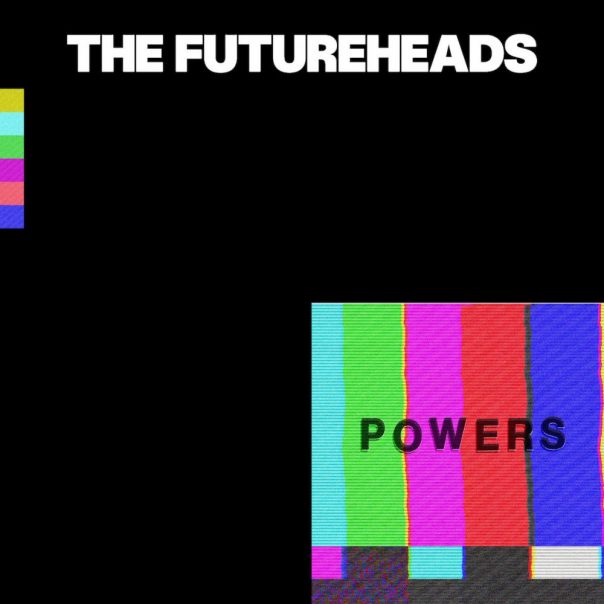ALBUM REVIEW: The Futureheads get deeper and darker on comeback album ‘Powers’

After a band makes a name for itself and subsequently drops off the radar for the better part of a decade, the questions begin. Did the band members run out of money, drugs or both? Did they wake up in a sweaty van, a thousand miles from a gig, and realize they all hated each other? After seven years, England’s The Futureheads return with their brand of energized, guitar-driven pub-punk to satisfy our craving for juicy gossip.
Powers
The Futureheads
Nul Records, Aug. 30
It turns out lead man Barry Hyde spent the intervening years staging a personal battle with his own mind. Diagnosed as bipolar in the early 2010s, he fought through relationship struggles and creative snags while the band took a long break. This makes it unsurprising to hear themes of madness and mental illness popping up on the Futureheads comeback album, Powers. This dark, reflective record marks the band’s first LP since 2012’s all a-capella experiment Rant, and a restoration of its deep post-punk and new wave roots.
From the raw guitar clanger that introduces “Jekyll,” it’s clear that this is going to be a different Futureheads. Odd time signatures and an operatic haunted house atmosphere make their way to the forefront, giving this album’s sound a looming sense of danger. To call it truly experimental would be an overstatement, but they begin to shine a light on the shadowy side of their bright, anthemic hit parade.
The eerie outer-space slither of “Listen, Little Man!” evokes a creepy-crawly unease, similar to that of the more muscular “Headcase.” The latter has everything you hope for in a Futureheads tune. It opens with an uncharacteristically scuzzy and menacing guitar figure, as Hyde delivers the self-aware lines: “There’s madness in your eyes/ And you don’t even know/ I think you’ve lost the plot/ I think it’s time to go and get some help.” Halfway through, the band checks out for a brief melodic chorus, which never repeats. The lack of melodic resolve plays into the song’s harrowing atmosphere.
“Animus” easily stands beside The Futureheads’ best work, recapturing their idiosyncratic, tuneful approach to song structure and vocal harmonies. Hyde’s delivery taps the hyper-professional zeitgeist of urban millennials. “Maybe you could be productive/ You could be the one/ Who gets things done,” he sings, recalling the office-pop charm of “First Day,” from the band’s 2004 debut. The song uses surprising chord changes and a barbed-wire guitar tone to avoid becoming over-polished.
The 43-minute record could have been chopped down a bit, as some passages feel superfluous. Still, the Futureheads come loaded with great songs. Powers is brimming with expert performances, sporting some of the band’s most cohesive material to date.
These songs stick out at odd angles from each other. Rather than causing disjointedness, the distinction makes for a holistic listen. “Good Night Out” has on-repeat potential, with its instantaneous hook and straightforward guitar call-and-response between Hyde and guitarist Ross Millard.
Later on, the band reaches a comfortable cruising speed on “Don’t Look Now.” The song lets the listener lean back and almost enjoy the pain of life for a few defeated moments. Bassist David Craig and drummer Dave Hyde make up the propulsive and relentless rhythm section, never letting the album run out of energy.
Though it doesn’t contain a radio-ready breakout song like “Meantime” or “Beginning Of The Twist,” this album shows the Futureheads’ willingness to explore darker and more thematically challenging directions. Powers is the band’s strongest effort since its debut. Turning nervous energy into loud, paranoid tantrums of sound, The Futureheads are both on their way and truly back.
Follow writer Alexander Baechle at Instagram.com/writheinsmoke.
